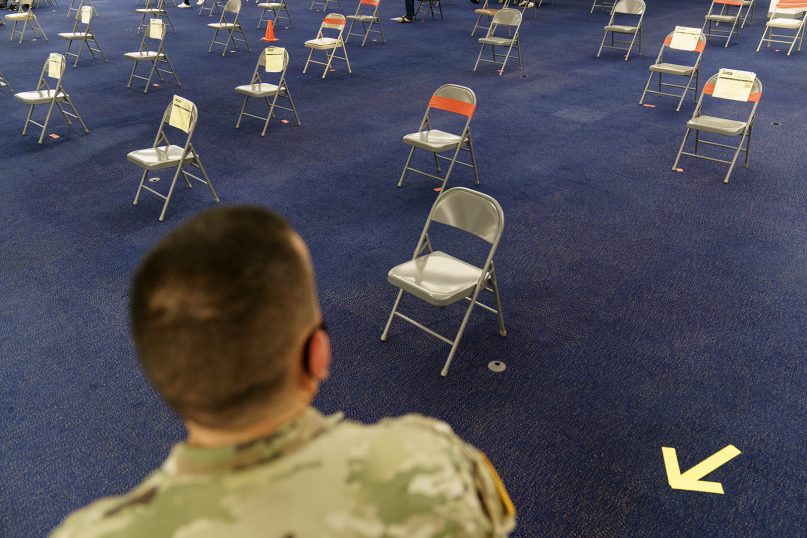(RNS) — “People do not live by bread alone.”
You know this verse from the Hebrew Bible’s Book of Deuteronomy or the New Testament’s Gospel of Matthew, both or neither. In any case, it means one thing: humans have needs beyond their physical ones. The Bible calls that “something” God, other traditions call it spirit, many psychologists call it meaning, some call it purpose. For the purposes of public health and saving lives, it’s all the same.
It is precisely because we are more than our physical needs that many states are failing in their attempts to get every one of their citizens vaccinated against COVID-19. Our need for more than bread (including the slang sense of the term) explains why incentive programs offering everything from “a shot and beer” to a “shot at a million dollars” to anyone getting vaccinated have failed to produce more than a short-term bump in our currently stalled rate of vaccination.
RELATED: Republicans and Democrats switch sides on religion vs. science
For the record, I support these programs, if only because I support public institutions putting their/our money where their/our mouths are. But given that lives will be lost unnecessarily unless we get more people vaccinated, and quickly, we need to look beyond financial incentives to do so.
It helps to understand why the prospect of a million-dollar reward for saving a life didn’t bring out all that many new takers.
From Ohio to Oregon to New York, there were small initial bump ups in the first one to two weeks following the prize announcements, but by four weeks out, rates were below where they had been before those prize announcements. Pollsters have found that some 24% of those who refuse to be vaccinated say they mistrust the government pushing them to get a vaccine. Others don’t believe COVID-19 is a risk to them.
The vaccination campaign has come down to a struggle between medical reality and personal perception. When it comes to changing reality and changing perception, the only real difference is that it is usually harder to change perception. If we are serious about doing so, it comes down to three issues: the message, the messengers and most importantly, who we are messaging.
Making the message about “science,” “medical evidence” or even “millions of dollars” doesn’t work for about a third of our population. I deeply appreciate the doctors, scientists and politicians who keep reminding us of the facts, but they are not reaching those whose worldviews go beyond material considerations. They need far more than “bread.”
One of the approaches that’s missing is a campaign that appeals to higher ideals, the kind of success nonprofit organizations have had with pink ribbons and rainbow pins. Celebrities and athletes should be marshaled to speak out and wear the appropriate pro-vaccine symbol.
RELATED: The path to herd immunity runs through America’s faith communities
Political and intellectual leaders need to step forward as well, and not only to ask people to stick out their arms; they need to stick their own necks out and confront the failures of the early pandemic, when there was confusion about masks and a lack of a unified message. People need to hear that they were at least partly correct about their concerns before they open themselves to the correctness of new conclusions.
Most of all we need religious leaders who are willing to preach about where we might find the presence of God in the vaccine and how we might honor God by daring to get it. A “bread alone” approach to vaccine education and advocacy seems to have reached its limits. Let’s keep pushing against that limit: We cannot, as the verses suggest, live by “God alone,” either. Let us see, instead, if we can honor both needs and save thousands of lives in the process.





